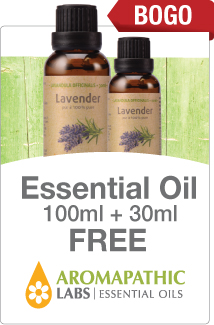
Glucosamine has been shown to help reduce osteoarthritis pain.
Glucosamine: A Key Nutrient In Joint Health
Updated Mar. 27th, 2024 | Read Time: 3 Minutes | What You Will Learn:
- Medicinal History of Glucosamine
- Glucosamine Declines With Age: Understanding The Effects On Your Body
- Further Research On Glucosamine Sulfate & Chondroitin
- Understanding How Glycosaminoglycan Deficiency Affects Your Health
- Glucosamine Supplement Varieties & Important Co-Supplements
- Shopping For Quality Joint Health Supplements
Glucosamine is an amino sugar, which is a precursor in the synthesis of glycosaminoglycans (GAG). It is found in large concentrations in the shells of shellfish, and the cell walls of some fungi. GAGs are also an essential component of joint cartilage, so supplementation with this nutrient may help provide the building blocks for cartilage formation.
Studies show that glucosamine supplementation improves joint function and decreases pain in individuals suffering from osteoarthritis. Natural health practitioners may also recommend glucosamine for joint injury, osteoarthritis, inflammation, bursitis, tendonitis and skin problems.
Medicinal History of Glucosamine
Decades ago, researchers found that glucosamine and chondroitin are both building blocks for the molecules that make up tendons, ligaments, bones, and synovial fluid. In the 1970s, co-supplementation was found to reduce pain in osteoarthritis sufferers. Researchers also found that the formerly degenerating joint cartilage had begun to repair itself. From then on, glucosamine was frequently recommended to help protect joint health, especially in combination with Chondroitin. These two molecules supply proteoglycans, which are an essential component of joint cartilage.
Glucosamine Declines With Age: Understanding The Effects On Your Body
Research continued and found that with age, the ability to regenerate and restore joint structure begins to fail, often due to a decrease in the body’s natural production of glucosamine sulfate and other structural molecules in the body. This deficiency causes a slowing in the production of new joint and connective tissue and in the repair of old tissue. When the body’s repairs cannot keep up with injury occurring in the joint, it begins to degrade, which results in pain and stiffness. Research has repeatedly found that co-supplementing glucosamine and chondroitin can help reduce pain in those suffering from arthritis. It can also decrease the destruction of cartilage that occurs when arthritis sufferers use non-steroidal anti-inflammatory drugs.
Further Research On Glucosamine Sulfate & Chondroitin
As the decades passed, further research was performed that brought the benefit of glucosamine and chondroitin supplementation into question. Finally, the GAIT study published in 2008 found that this combination was most effective for moderate to severe arthritis pain in the knee, and gave 79% of sufferers a 20% or greater reduction in pain. Unfortunately, glucosamine and chondroitin have been found to have much less effect in those with only slight pain. It is important to note that supplementation of chondroitin and glucosamine was also found to take several weeks of ongoing supplementation for benefits to occur. This helped to clarify the reason for the previous conflicted results in shorter research studies.
Understanding How Glycosaminoglycan Deficiency Affects Your Health
A deficiency of GAGs in the body can lead to joint deterioration because of insufficient cartilage synthesis. Break down of joint structure results in pain, and stiffness, especially after periods of rest, which is a condition known as Osteoarthritis. It can also cause creaking and cracking joints. Those with particularly low levels of GAGs will likely benefit from glucosamine supplementation. If this is not the underlying cause of the symptoms of the degeneration, then supplementation may not resolve the symptoms.
Glucosamine Supplement Varieties & Important Co-Supplements
When it is found in joint support formulas, this nutrient is often combined with other supplements that promote joint healing. Two common examples are chondroitin and MSM. Collagen is also commonly supplemented in conjunction with any of these. This is primarily because research has often combined these supplements to examine their treatment of joint deterioration, rather than examining each one individually.
Shopping For Quality Joint Health Supplements
There are a few different forms of glucosamine available such as glucosamine sulfate, glucosamine hydrochloride, and N-acetyl-glucosamine. You can find any of these in powdered form alone in capsules, or combination supplements for joint health. The recommended dose supported by research is 500mg taken three times daily. Generally, these supplements should be taken with meals, as this will increase the amount of stomach acid and enzymes present to allow for proper absorption. Supplementation may need to continue for over a month (even 2-3 months in some cases) before full benefits are seen.






















A few years ago it became obvious that my running days were over - my knees were shot. My knees were now painful after walking, and kneeling was out of the question. After specialist consultation it was determined that an operation would help. One knee at a time was to be done. The operation was fairly successful, but shortly after the operation I developed a blood clot that eventually went to my lungs and caused a pulmonary embolism - I almost died. Needless to say, I opted out of the second knee operation. I started to take a glucosamine and chondroitin product to help continue the healing of the knee that was operated on. It helped, so I continued taking the product. Little did I know that within the year my second knee was not causing me any pain and felt a lot better. I was able to do limited exercises to further help strengthen both knees. Now years later my knees are still in good shape.
Hello Bill,
Thank you for sharing your story, we love to hear them! Glucosamine and Chondriotin, as well as collagen and MSM, are great supplements for supporting joint health and may help alleviate pain. We are happy to hear that in your case, this regimen helped.
Stay healthy & well!